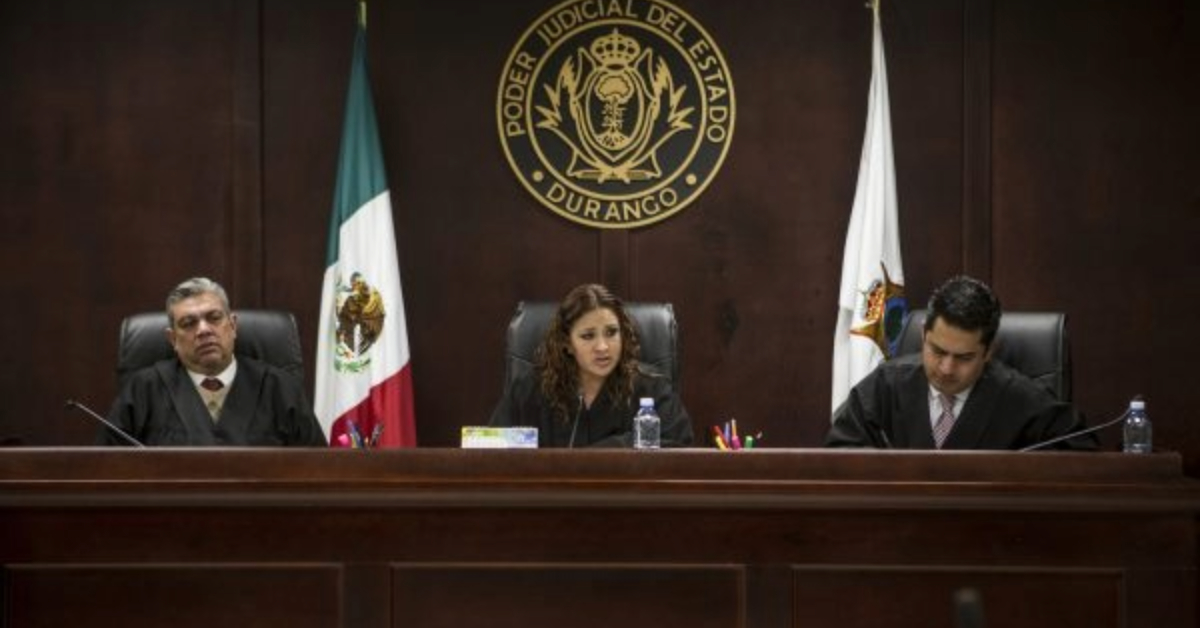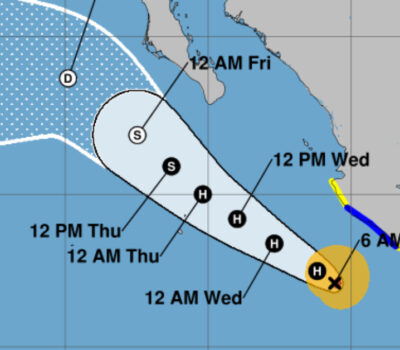Puerto Vallarta, Mexico – Mexico’s Congress has taken a dramatic step toward reshaping the country’s judiciary with a constitutional amendment passed by the House of Deputies on Wednesday. The reform, which allows voters to elect nearly all of the nation’s judges, including those on the Supreme Court, has raised alarms both within Mexico and abroad, particularly in Washington and the business community.
The Biden administration, legal experts, and business groups have voiced strong concerns that the reform could undermine Mexico’s fragile democracy and weaken its economic ties with the United States. Critics point to the potential consolidation of power in the hands of President Andrés Manuel López Obrador’s Morena party, warning that the move could return Mexico to a one-party system similar to the one that dominated the country for most of the 20th century.
The Reform’s Provisions
The amendment, which passed in the early hours of Wednesday, will now move to Mexico’s Senate, where approval is also expected. If it becomes law, it will mark a significant overhaul of the country’s judiciary. Under the current system, most federal judges are appointed based on their experience, qualifications, and performance on exams. The new system would require nearly all of the country’s federal judges, including the nine Supreme Court justices, to be elected by the public.
This dramatic shift means that, over the next three years, all current federal judges would be required to resign. In their place, Mexican voters will choose new judges from a pool of candidates nominated by the presidency, Congress, and the judiciary. In elections set for next year and 2027, the public will decide on 1,686 federal judges, including the Supreme Court justices, as well as an additional 5,000 state and local judges. The reform also does away with lifetime tenure for judges, replacing it with nine-year terms.
Concerns Over Judicial Independence
Legal analysts argue that the reform threatens the independence of Mexico’s judiciary. The shift toward elected judges could incentivize judges to make decisions that appeal to voters rather than strictly interpreting the law. The fear is that populism could seep into the judiciary, particularly if judges feel pressure to cater to public opinion or powerful interest groups, including business elites or criminal organizations.
“The judiciary is supposed to be a check on the other branches of government, but with this reform, we could see the opposite,” said a legal scholar at the National Autonomous University of Mexico. “Judges could be swayed by whoever holds the most influence over voters, rather than by the rule of law.”
Critics are especially worried about the Morena party’s influence. Given the party’s overwhelming majority in Congress, many fear that elected judges could skew in favor of Morena, further eroding the separation of powers.
Economic Implications for U.S.-Mexico Relations
The reform has also raised red flags in the business community, both in Mexico and abroad. U.S. Ambassador to Mexico Ken Salazar warned that the overhaul could undermine investor confidence in Mexico, a key concern for the two nations, which are each other’s largest trading partners. Business groups argue that the reform introduces legal uncertainty at a time when Mexico is trying to attract foreign investment, particularly in the context of nearshoring trends that have emerged following the COVID-19 pandemic.
“The timing of this reform couldn’t be worse,” said a representative from Mexico’s largest business association. “Just as Mexico is positioning itself as a key player in global supply chains, we’re introducing unnecessary risks that could drive investors away.”
Financial markets have already reacted to political developments in Mexico. Since Morena’s sweeping victory in June elections, which solidified its control over Congress, the Mexican peso has depreciated by more than 10%. Investors are wary of the far-reaching changes the party might enact, particularly those affecting government watchdog agencies and key industries such as energy.
López Obrador’s Push for Accountability
President López Obrador, whose term ends next month, has long been critical of the judiciary, accusing it of favoring Mexico’s wealthy elite. He has been particularly frustrated with the Supreme Court, which has blocked several of his signature initiatives, including plans to expand government control over the energy sector and transfer control of the National Guard to the military.
In defense of the reform, López Obrador argues that electing judges will make them more accountable to ordinary citizens. “The judiciary has been hijacked by a minority,” he said in June. “Electing judges will ensure that they serve the people, not the powerful few.”
The president’s critics, however, contend that this reform is less about accountability and more about consolidating power. Before June’s elections, López Obrador lacked the supermajorities needed to amend the constitution. Now, with Morena’s strengthened position in Congress, he has a narrow window to enact significant changes before handing over the presidency to his chosen successor, Claudia Sheinbaum.
A Broader Debate on Judicial Reform
Many experts agree that Mexico’s judiciary is in need of reform. The system has long been plagued by underfunding, inadequate training, and corruption. However, human rights organizations and legal scholars argue that electing judges does not address these core issues. Instead, they say, the focus should be on improving resources and training for judges, ensuring they are equipped to deliver justice effectively and impartially.
“The problem isn’t that judges aren’t elected — it’s that the judiciary lacks the independence and resources to do its job,” said a spokesperson for a leading human rights organization. “Electing judges won’t fix corruption or inefficiency. In fact, it could make things worse.”
International Comparisons
In defending the reform, proponents point to the fact that in 39 U.S. states, citizens elect some or all of their judges, particularly at the state and local levels. However, the U.S. system also has its critics. The American Bar Association has warned of the potential for corruption in judicial elections, where candidates may seek donations from groups whose cases they will eventually rule on. In Mexico, where criminal organizations wield significant influence, these concerns are even more pronounced.
Unlike the U.S., where many trials are decided by juries, Mexican judges typically have the final say in legal matters, making their impartiality even more critical. Critics argue that any system that makes judges beholden to voters or political interests risks undermining the rule of law.
Looking Ahead
As the judicial reform heads to Mexico’s Senate, the debate over its implications is intensifying. While the overhaul promises to reshape Mexico’s judiciary, the potential risks to judicial independence, investor confidence, and the country’s democratic institutions are too significant to ignore. The coming weeks will determine whether Mexico’s Senate will heed the warnings from critics or push forward with one of the most controversial reforms in the country’s recent history.
Puerto Vallarta, Mexico - Mexico’s Congress has taken a dramatic step toward reshaping the country’s judiciary with a constitutional amendment passed by the House of Deputies on Wednesday. The reform, which allows voters to elect nearly all of the nation's judges, including those on the Supreme Court, has raised alarms both within Mexico and abroad, particularly in Washington and the business community.












